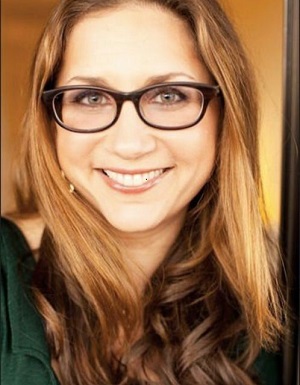Riky Stock of the Frankfurt Book Fair New York celebrates the work of translator Susan Bernofsky, sharing some of her tips for emerging translators
Acclaimed translator Susan Bernofsky is the winner of this year’s Friedrich Ulfers Prize for her role as a passionate promoter of German-language literature in the United States over more than two decades. Susan has hosted translation workshops for us, spoken on panels, curated Festival Neue Literatur, judged translation prizes and, as a mentor, has recommended many young translators to us over the years. How and why did Susan choose this profession?
‘I got into translating as a young writer who’d studied German in high school. One of my creative writing teachers suggested I try translation, and I was immediately hooked, and then I kept finding authors whose work I loved in German, stories I wanted to be able to show to friends who couldn’t read German. (One of the writers I fell in love with in the early ‘90s was Yoko Tawada.) Eventually I found myself wanting to translate everything I read and loved – it felt like a deeper form of reading and paying tribute, but also a way of really understanding how a work was put together.’
Over the course of her career Susan has translated contemporaries, classics, poets, and countless short pieces and samples. She has written award-winning translations of works by Jenny Erpenbeck and Yoko Tawada, and is a notable fan of the Swiss writer Robert Walser, having translated eight of his novels. Susan runs a blog on translation and international literature, ‘Translationista’, including numerous tips for emerging translators. Here is her suggestion for pitching a favourite author to publishers:
‘Imagine the situation from the publisher’s point of view. To publish (acquire rights, edit, copyedit, print, distribute, promote) a book involves a seriously substantial investment of money and time on a publisher’s part. Even if you’ve produced a strong short sample from the book (which you might have gotten help with, for all the publisher knows) – for an editor to trust that a translator without a track record is really going to be able to produce a translation of the entire book that is of the same quality as the sample within a reasonable time frame is a leap of faith. The more previous publications you can demonstrate (including in journals), the easier you make it for a publisher to decide to take you on. And of course if you win a competition or a grant, that’s an excellent calling card right there. In preparing a pitch, think about what you yourself would want to know about a project before deciding to invest in it; among other things, that will probably involve an assessment of where the author you’re proposing fits in the context of international writing as well as in the English-language literary landscape, and also what the book in question has in common with other works published by this publishing house.’
Check out Susan’s ‘Tips for Beginning Translators’: http://translationista.com/ 2017/08/tips-beginning-translators.html and her farewell to Anthea Bell https://translationista.com/2018/10/ saying-goodbye-to-anthea-bell.html
The Friedrich Ulfers Prize was established in 2013 and is awarded annually on the occasion of Festival Neue Literatur by Deutsches Haus at New York University (https://festivalneueliteratur.org/). It is typically awarded to a leading publisher, writer, critic, translator, or scholar who has championed the advancement of German-language literature in the United States. The prize, which is endowed with a $5000 grant, has previously been awarded to Barbara Epler, Barbara Perlmutter, Burton Pike, Robert Weil, Sara Bershtel, and the late Carol Brown Janeway. The Friedrich Ulfers Prize is Festival Neue Literatur’s testimony to the rising importance of German-language literature in America.
Further support for translators in the United States includes the Gutekunst Prize of the Friends of Goethe New York, for US residents under the age of 35 who’ve not yet published a book-length translation. The winner is presented with a prize of $2500. The prize was established in 2010 from a generous donation in memory of Frederick and Grace Gutekunst in order to identify outstanding young translators of German literature into English, and to assist them in establishing contact with the translation and publishing communities. As of 2017, the prize is supported by the Friends of Goethe New York.
The Börsenverein des Deutschen Buchhandels (German Publishers’ and Booksellers’ Association) and the Frankfurt Book Fair New York run the bi-annual GINT Translation Prize. Also for translators who have not yet published a book-length translation, this prize focuses on non-fiction. The next call for submissions will be in June 2019.
The Frankfurt Book Fair New York also hosts occasional workshops and panel events for translators.



